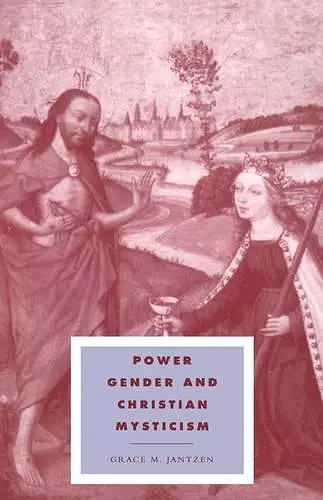Power, Gender and Christian Mysticism
Format:Paperback
Publisher:Cambridge University Press
Published:16th Nov '95
Currently unavailable, and unfortunately no date known when it will be back

A well-known theologian challenges perceived notions of mysticism in relation to power and gender.
In western Christianity, the mystic was seen as having direct access to God and great authority. Men controlled who counted as a mystic: women were excluded. Dr Jantzen's philosophical argument takes issues of gender seriously and makes use of them for a deconstructive approach to Christian mysticism.In the western Christian tradition, the mystic was seen as having direct access to God, and therefore great authority. In this study, Dr Jantzen discusses how men of power defined and controlled who should count as a mystic, and thus who would have power: women were pointedly excluded. This makes her book of special interest to those in gender studies and medieval history. Its main argument, however, is philosophical. Because the mystical has gone through many social constructions, the modern philosophical assumption that mysticism is essentially about intense subjective experiences is misguided. This view is historically inaccurate, and perpetuates the same gendered struggle for authority which characterises the history of western christendom. This book is the first on the subject to take issues of gender seriously, and to use these as a point of entry for a deconstructive approach to Christian mysticism.
'The first major study of Christian mysticism to utilise a deconstructionist approach, Power, Gender and Christian Mysticism illuminates the meaning of gendered rhetoric in the writings of major male 'mystics' from Plato to Dionysus to Eckhart. Most importantly, through a 'deeper' reading of female mystics and visionaries (often ignored - and sometimes silenced) Grace Jantzen has allowed these women to speak eloquently. Her inescapable conclusion is that we can no longer speak of 'Christian Mysticism,' but of 'Christian Mysticisms', and of these not as intense, private experiences, but as manifesting sets of social relations and representations. This is a scholarly, but at the same time most readable and entertaining work, and I recommend it strongly.' Philip C. Almond, University of Queensland
ISBN: 9780521479264
Dimensions: 217mm x 137mm x 22mm
Weight: 465g
404 pages